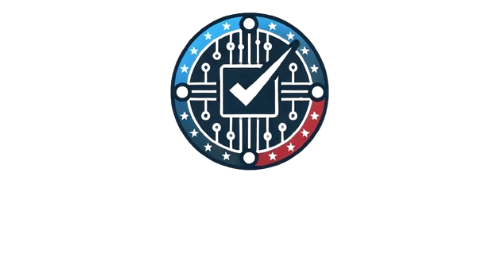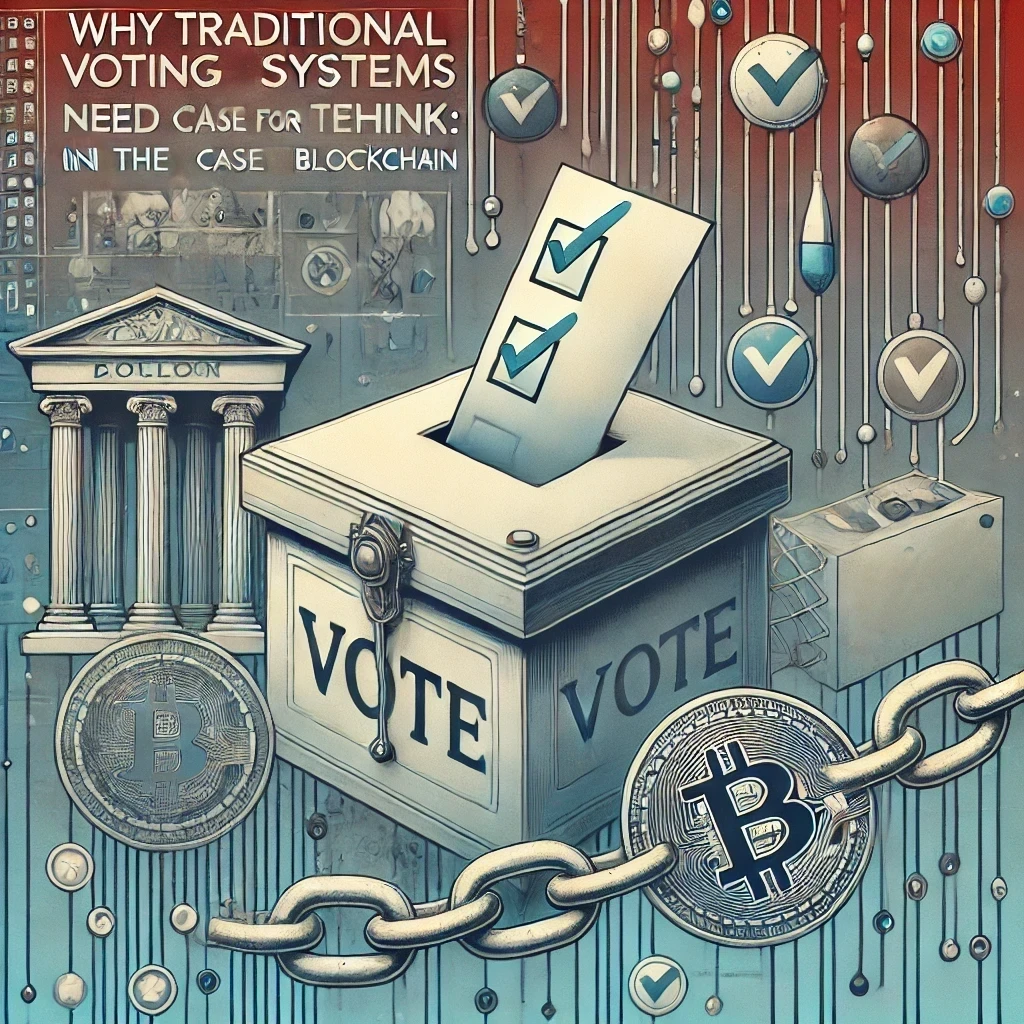Why Traditional Voting Systems Need a Revamp
Voting is a fundamental pillar of democracy, yet the systems we rely on to cast and count our votes have changed remarkably little over the centuries. As we move deeper into the digital age, it’s becoming clear that traditional voting systems are increasingly out of step with modern needs. At Voting On The Blockchain, we believe that the time has come for a significant evolution—one that builds on the lessons of the past and leverages the power of blockchain technology to secure the future of our democratic processes.
Voting is a fundamental pillar of democracy, yet the systems we rely on to cast and count our votes have changed remarkably little over the centuries. As we move deeper into the digital age, it’s becoming clear that traditional voting systems are increasingly out of step with modern needs. At Voting On The Blockchain, we believe that the time has come for a significant evolution—one that builds on the lessons of the past and leverages the power of blockchain technology to secure the future of our democratic processes.
A Look Back: The Evolution of Voting Systems
Voting systems have evolved over time, each new method attempting to improve upon its predecessor. In the early days of democracy, voting was a straightforward but often flawed process. Paper ballots were the norm for centuries, but they were susceptible to tampering, fraud, and human error. As technology advanced, so did voting systems. The introduction of electronic voting machines in the 20th century promised greater accuracy and efficiency, but these systems brought their own set of challenges.
Electronic voting, while a step forward, has not been without issues. Reports of malfunctioning machines, unverified results, and even allegations of hacking have raised concerns about the integrity of electronic voting. Despite these advancements, the core problems of security, transparency, and trust have persisted.
Modern Voting Needs: Why Traditional Systems Fall Short
Today’s voters expect more from their voting systems than ever before. We live in a world where transactions can be completed instantly online, where data can be accessed in real-time, and where security is paramount. Yet, when it comes to voting—arguably the most critical democratic process—our systems are often slow, opaque, and vulnerable to manipulation.
Modern voters demand:
- Security: Voters want to be confident that their votes are secure from tampering, hacking, and fraud.
- Transparency: There’s a growing expectation that the voting process should be transparent, with results that are verifiable by anyone.
- Speed and Efficiency: In a fast-paced world, waiting days or even weeks for election results can feel antiquated and frustrating.
Traditional voting systems, whether paper-based or electronic, struggle to meet these expectations. Incremental improvements to these systems have not been enough to address the fundamental flaws. This is where blockchain technology comes into play—not as just another improvement, but as a necessary evolution.
The Case for Blockchain: A Necessary Evolution
Blockchain technology, first introduced with the advent of Bitcoin, offers a fundamentally different approach to securing and verifying transactions. Its decentralized, transparent, and immutable nature makes it uniquely suited to address the challenges that have long plagued traditional voting systems.
Here’s why blockchain is not just another option, but a necessary evolution:
- Decentralization: Unlike traditional systems that rely on central authorities, blockchain distributes the process across a network, eliminating single points of failure and reducing the risk of tampering.
- Transparency: Every vote cast on a blockchain can be verified by the public without compromising voter privacy. This level of transparency is unmatched by traditional systems.
- Immutability: Once a vote is recorded on the blockchain, it cannot be altered or deleted. This ensures that every vote is counted exactly as it was cast.
Challenges in Transition: Moving from Traditional to Blockchain Voting
While the benefits of blockchain voting are clear, transitioning from traditional systems to a blockchain-based system is not without challenges. These challenges include:
- Technological Hurdles: Implementing blockchain voting on a large scale will require significant technological infrastructure and expertise. Ensuring that the system is user-friendly and accessible to all voters, regardless of their technical proficiency, is critical.
- Regulatory Barriers: Governments and election authorities may be slow to adopt new technologies, especially those that represent a significant departure from the status quo. Overcoming regulatory hurdles will require education, advocacy, and pilot programs that demonstrate blockchain’s effectiveness.
- Public Trust: Gaining public trust in a new voting system is perhaps the biggest challenge. Voters must be convinced that blockchain voting is not only secure and transparent but also a better alternative to the systems they are familiar with.
Future-Proofing Democracy: Blockchain as a Long-Term Solution
As we look to the future, it’s clear that blockchain technology offers more than just a solution to the problems of today’s voting systems. It represents a future-proof approach to voting—one that can adapt to new challenges and continue to secure the democratic process for generations to come.
Blockchain’s inherent adaptability means that it can be customized and scaled to meet the unique needs of different elections, from local referendums to national contests. As more countries and organizations explore blockchain voting, we are likely to see a global shift towards this innovative technology.
Conclusion
The evolution of voting systems has been a long and sometimes challenging journey. From paper ballots to electronic voting machines, each advancement has brought us closer to a more secure and efficient voting process. However, traditional systems have reached their limits, and the time has come for a new approach.
Blockchain technology offers a necessary evolution—one that builds on the lessons of the past while addressing the needs of the future. At Voting On The Blockchain, we are committed to leading the way towards a more secure, transparent, and trustworthy voting system.
As we continue to explore and develop blockchain voting, we invite you to join us on this journey. Together, we can ensure that every vote counts, and that democracy thrives in the digital age.

